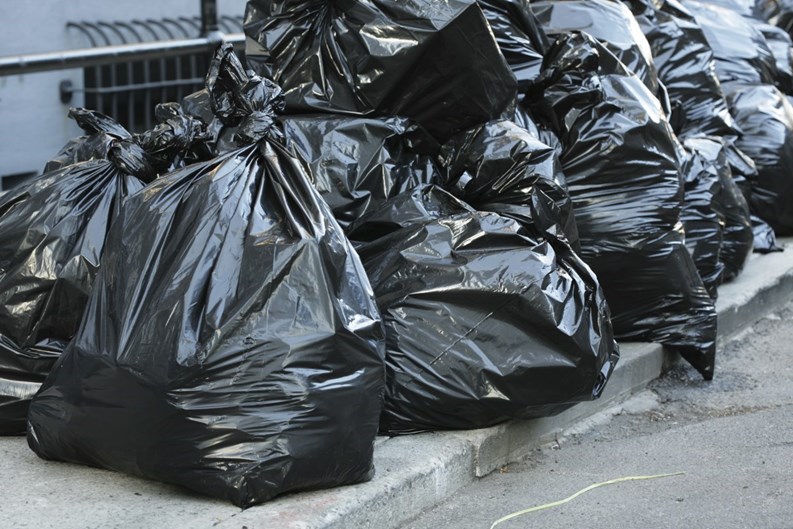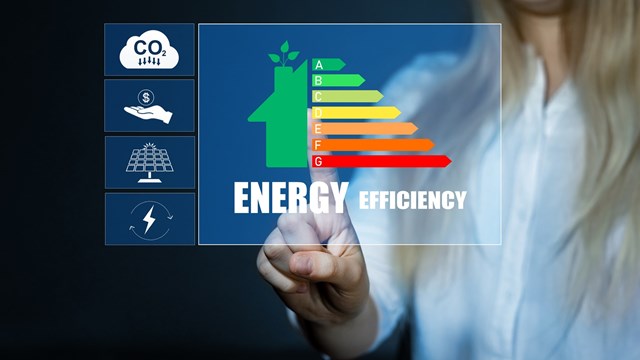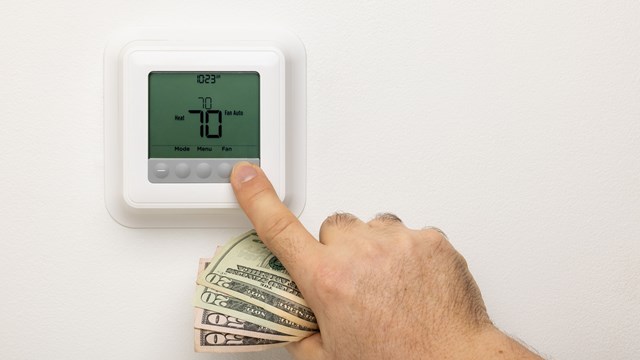In days gone by, when you opened something up, you simply threw away the packaging. You ate your dinner and threw away the scraps, and you tossed your ratty old sweatshirt, t-shirt or jeans in the dumpster when they had more holes in them than a chunk of Swiss cheese.
A Throw-Away Society
It’s not surprising then, that as a nation, Americans generate more waste than any other nation in the world with 4.6 pounds of municipal solid waste per person per day—fifty-five percent of which is contributed as residential garbage. It is estimated, for example, that Americans use 2,500,000 plastic bottles every hour, with the majority of them being thrown away. New Jersey communities produce hundreds of tons of trash every day—household trash, industrial waste, old appliances, broken-down furniture—and the numbers are growing. It's been estimated that the amount of total solid waste generated within the state rises by about four percent per year.
We've come a long way from there in many regards. Today that journey of your old t-shirt and jeans or your Friday dinner leftovers entering the waste stream from garbage to landfill can take a very different route. That shirt or jeans can now be donated to a textile recycling center; the food scraps can now be composted; and every package you open is broken down and recyclable pieces are put in their appropriate containers.
In nearly every community, a variety of city and statewide initiatives exist to reduce the annual amount of garbage going into the waste stream. Recycling programs are in place for paper/cardboard and textiles, bottles and cans and electronic waste or e-waste. Most recently, composting programs have gained momentum in residential communities.
Keep it Clean
“Most of our communities, says Albert Pellegrino, president at P & A Management in Hamilton, “have municipal waste and county recycling but in one of our mid-rise communities, we have trash chutes and recycling buckets on every floor, making it easy for the residents to properly recycle, thereby reducing trash.” The key, Pellegrino says, “is to keep the trash room clean and empty the recycling buckets every day.”
More recently, composting programs have taken off, both in municipalities and in individual condo and HOA communities. Composting is the means of taking biodegradable material—kitchen waste, for the most part—and using the natural decomposition process to turn the material into a rich mulch that can be used as fertilizer for lawns or gardens.
Garden State Garbage
Improvements notwithstanding, waste management is by nature a messy business. Nobody is ever excited to live near a recycling or waste treatment facility, even if those facilities have the latest, "clean" technologies. Garbage trucks are noisy, and landfills themselves attract vermin and can be pungent, to say the least. According to the Statewide Solid Waste Management Plan on the state Department of Environmental Protection's (DEP) website, "There are approximately 600 known current and former landfills in the state," the majority of which have been closed. Go to www.state.nj.us/dep/dshw/ to find out more.
Most of those facilities predated environmental regulations, so many contained hazardous wastes. Thanks in large part to the growing awareness of environmental issues in the 1970s, more than half had already closed by the mid-1980s—some because of unsafe materials, others because they had just run out of space.
With dumps out of commission and stricter rules about how waste should be handled, New Jersey adopted the Solid Waste Management Act (SWMA) which established a regulatory framework for the implementation of environmental standards for solid waste management. The SWMA was amended in 1975 to establish the current solid waste management planning process. The 1975 amendments assigned primary planning responsibilities, subject to detailed state level review and approval, to 22 solid waste management districts. By 1990, 13 new facilities had been built with public funds, and many more have followed since.
Although some landfills are still operating, for the most part, their function has been replaced by waste transfer stations for typical household and commercial waste, as well as "Class B" and "Class C" recycling centers, which recycle a wide variety of materials, from cardboard and paper to bottles and cans to dead leaves. Recycling has been mandatory in New Jersey for more than 20 years.
In Morris County, for example, trash that ends up at the two transfer stations is trucked to out-of-state landfills, including several in Pennsylvania. As strange as it may seem to some people, these out-of-state landfills actually like household garbage, and make a profit out of dealing with it. In some other places, trash can go to a waste-to-energy facility, which is similar to an incinerator, with the heat being harnessed to power electrical generators.
As for recyclables, recycling plants are more intensive than waste transfer stations, which for the most part just transfer the garbage from one venue to another. "At recycling plants, materials are processed into two streams, one paper and cardboard, the other bottles and cans," says Marie Kruzan, executive director of the Association of New Jersey Recyclers. "Workers separate them into components, package them, in some instances, bale them or crush them.” Then, she says, the recyclables are taken to industrial facilities where there's a market for them. "Paper can be taken to paper mills, cans and bottles can be melted down and re-used," she adds.
Knowing More is Better
For the most part, condos and HOAs, as well as rental apartment buildings, have gotten on-board with the recycling movement. The state just celebrated its 25th anniversary of the Mandatory Recycling Act. In 2010, they reached a 40 percent recycling rate for municipal solid waste, which was an increase from 37 percent the previous year, according to the New Jersey DEP. That jump was due to an extra 364,000 tons of paper, glass, cardboard, plastic and other items recycling in 2010 instead of being tossed into landfills or incinerators. What that means in terms of money is a savings of $26 million from avoided solid waste disposal costs, plus an additional $45.5 million in the revenue from the sales of recycled materials throughout the state.
Residents these days know to take their garbage and trash to a central location, where it is then picked up, says Kruzan. (Actually, multifamily buildings must have two collection points, even if they're right next to each other—one for garbage as such, the other for recyclables.)
From throwing away trash, to recycling and composting, educating the building staff and residents is key—and that means keeping your staff and residents up-to-date on changes in trash, composting and recycling laws. For example, industry experts estimate that U.S. consumers throw away 400 million units of electronic equipment—cell phone and computers for example—per year.
That so-called 'e-waste' contains trace metals and other potentially hazardous materials, so it must be disposed of properly. In 2013, there were 40 million pounds of recycled electronic waste. That’s a five-fold increase since 2010, when just 8 million pounds were recycled, and the state government has instituted a push to remind New Jersey residents that they should be recycling their TVs, computers, phones and other gadgets along with their cardboard boxes and Snapple bottles (though not in the same bin!)
The DEP has sought for the past three years to improve compliance in dealing with electronic waste or e-waste through an outreach and educational campaign. To help residents put the right kind of waste in the right place, waste management and recycling experts also advise having a separate collection location for their residents’ waste and their residents’ recyclables. Having a visible bin or compartment for paper, cardboard, plastic containers—such as soda or water bottles, laundry detergent containers—encourages more recycling.
According to Joseph J. Balzamo, president of Alliance Property Management in Morristown, “We ensure we are following current local and state mandates for garbage and recycling; each resident receives a recycling schedule. In addition, we ensure there are proper signs noted on how the various kinds of waste should be handled, including contact information for the contractor or local municipalities for certain types of bulk [or] environmentally sensitive trash, and we educate residents to ensure they are aware that special delivery items, such as furniture and appliances are taken off the premises.”
Making enough space for sorting and storing recyclables is another important piece of the puzzle, says Guy Watson, bureau chief of the NJDEP's Bureau of Recycling and Hazardous Waste Management. “If the site manager or owner addresses that issue of storage, whether that means providing more storage space outside, if you get the space do it. Maybe the frequency of the collection of recyclables is not frequent enough if you don't have the storage containers. From the manager's standpoint, look at that area. Are you making it as convenient as possible for residents to store recycling?”
And training board members and association staff rounds out the picture. “This relates to their current understanding of trash as an issue,” Balzamo says. “For the most part, the good news is that most everyone wants to be environmentally conscious. Our job is to put into place the necessary controls, and take the initiative which allows for the trash to be handled accordingly.”
Lisa Iannucci is a freelance writer and a frequent contributor to The New Jersey Cooperator.







Leave a Comment